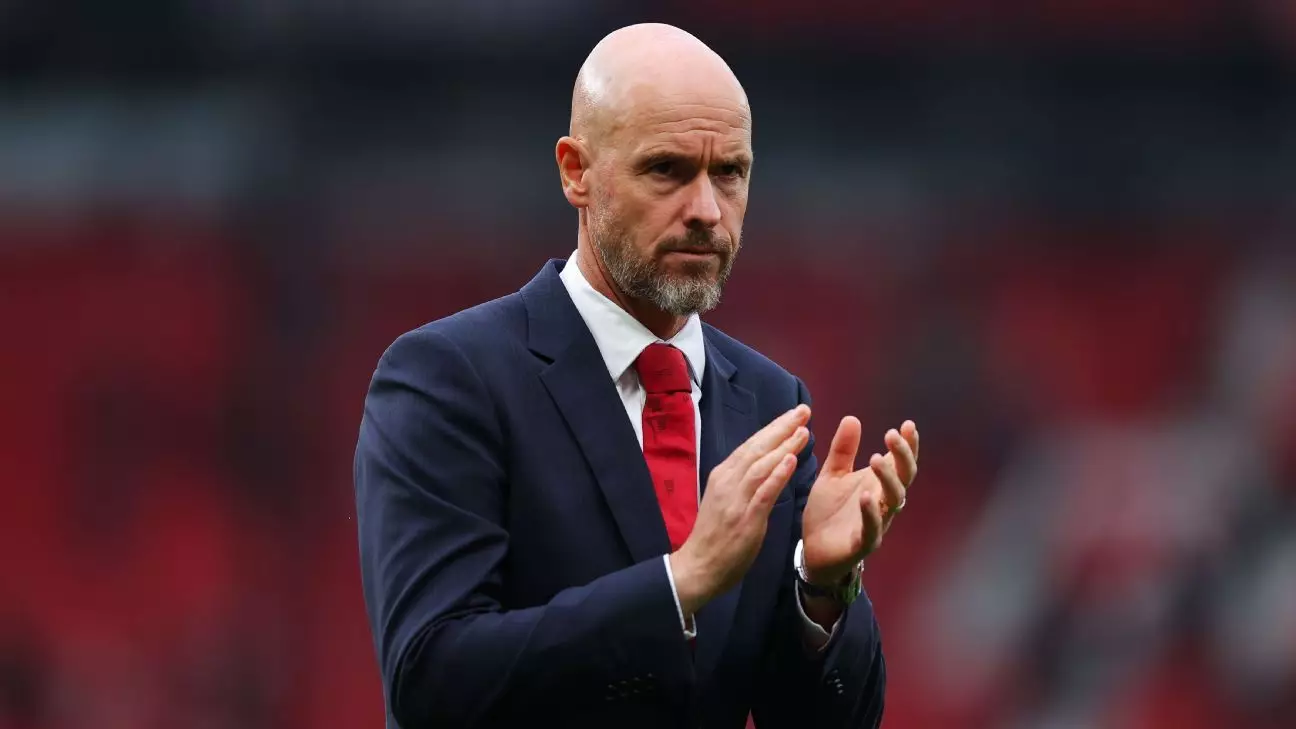In the world of football, public statements can ignite fiery debates, especially when they involve high-profile players and managers. Recently, Erik ten Hag, the manager of Manchester United, found himself navigating a complex situation after comments made by Cristiano Ronaldo. The Portuguese superstar, speaking on a podcast with former United defender Rio Ferdinand, expressed his discontent with Ten Hag’s mindset regarding the club’s ambitions, specifically in terms of winning titles. Ronaldo’s comments suggest a level of frustration not only with the direction of the team but also with Ten Hag’s future outlook.
In a robust rebuttal, Ten Hag countered Ronaldo’s critique by implying that the forward’s understanding of Manchester United’s current dynamics is flawed—largely because he is now “far away” in Saudi Arabia. This notion serves two purposes: it diminishes Ronaldo’s credibility by highlighting his physical distance from the club and also shifts the focus back onto the responsibilities of the present squad. Ten Hag’s assertion that it was Ronaldo who stated United could not win the league encapsulates a broader narrative of responsibility and accountability. This back-and-forth could signify an ongoing rivalry that is fueled by past conflicts during their time together at United.
Amidst the surrounding drama, Ten Hag’s managerial position comes under increasing scrutiny, particularly following a disappointing 3-0 defeat to Liverpool. The mounting pressure is palpable, and while he has received backing from higher-ups, the shadow of potential replacement looms ever larger. Extended contracts offer little solace when results falter; hence, the managers are constantly in a high-stakes game, led by performance. Ten Hag’s determination, however, to integrate young talents into the squad suggests a commitment to long-term vision over short-term gain, although this approach may not align with the immediate expectations of the Manchester United faithful.
A further complication arises from player injuries, particularly concerning key figures like Luke Shaw and Rasmus Højlund. Their absence underscores the ongoing challenges facing the squad. The integration of new signings such as Manuel Ugarte may invigorate the team dynamics, but only if these players can hit the ground running. Ten Hag’s acknowledgment of the team’s transitional phase is a candid reflection of the reality—adapting strategies while cultivating both established and emerging talent must be prioritized.
As United prepares for their next match against Southampton, Ten Hag’s focus is undoubtedly on securing victory amid external pressures. The pursuit of winning every game is not merely a mantra; it is a necessity borne out of the context of their current league standing and aspirations. While the noise from external opinions, like that of Ronaldo, can create turmoil, it is Ten Hag’s ability to stay grounded and implement his vision that will ultimately define his tenure at Old Trafford. The ensuing games will serve as a critical juncture, determining whether Ten Hag’s strategy will yield fruitful results or if the storm around him will culminate in significant upheaval.

